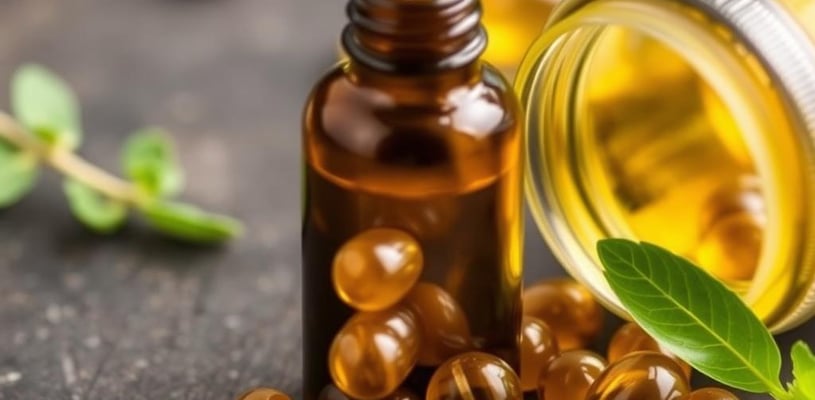Debunking Common Myths About Herbal Supplements
This article clears up misconceptions about herbal supplements, addressing safety concerns, FDA regulations, and their role in health care. Readers are urged to consult professionals, research thoroughly, and approach natural remedies with informed caution.
MYTHS VS. FACTS


In recent years, the popularity of herbal supplements has surged as people increasingly turn to natural remedies in their quest for improved health and well-being. However, with this rising interest comes a plethora of myths and misconceptions that can lead to confusion and potentially harmful decisions. In this article, we will debunk some of the most common myths surrounding herbal supplements, providing clarity to help you make informed choices.
Myth 1: Herbal Supplements Are Always Safe
Reality: While many herbal supplements are derived from natural sources, this does not automatically make them safe. Just like pharmaceutical drugs, herbal supplements can have side effects, interact with other medications, or cause allergic reactions. For instance, St. John’s Wort, often used for depression, can interfere with the efficacy of birth control pills and other medications. It’s crucial to consult with a healthcare provider before starting any new supplement regimen, especially if you have existing health conditions or are on medication.
Myth 2: Herbal Supplements Are a Substitute for Medical Treatment
Reality: Many people believe that herbal supplements can replace conventional medicine, especially for serious health issues. While some herbs may complement treatments or provide relief for mild ailments, they should not be viewed as a substitute for medical care. Chronic conditions, infections, or severe illnesses require professional medical attention and should not be managed solely with herbal remedies. Always discuss with your healthcare provider how herbal supplements can fit into your overall treatment plan.
Myth 3: All Herbal Supplements Are Regulated by the FDA
Reality: Unlike prescription drugs, herbal supplements are not regulated by the FDA with the same scrutiny. The FDA does not require supplements to undergo rigorous testing for safety or efficacy before they reach the market. This lack of regulation can lead to inconsistencies in product quality, potency, and purity. Consumers should seek supplements from reputable companies that adhere to good manufacturing practices and provide third-party testing to verify their claims.
Myth 4: Natural Means Better
Reality: The perception that “natural” equates to “better” is a misleading oversimplification. While many herbal supplements can provide health benefits, not all natural substances are safe or effective. For example, some natural substances can be toxic in certain doses or have harmful effects. Additionally, synthetic compounds can be just as effective as their natural counterparts, and in some cases, they can be more reliable in terms of dosage and purity.
Myth 5: Herbal Supplements Can Cure Diseases
Reality: The notion that herbal supplements can cure diseases is a myth that can be particularly harmful. While some herbal remedies may alleviate symptoms or support overall health, they are not cures for diseases. For example, turmeric may have anti-inflammatory properties, but it should not be considered a cure for arthritis or other inflammatory conditions. Understanding the limitations of herbal supplements is essential for setting realistic expectations about their effects.
Myth 6: If It’s on the Shelf, It’s Safe
Reality: Just because a product is available for purchase does not mean it is safe or effective. The marketplace for herbal supplements can be rife with misinformation, and not all products live up to their claims. Some supplements may contain undisclosed ingredients, contaminants, or may not contain the active ingredients they purport to have. It's essential to do thorough research, read labels carefully, and choose brands that are transparent about their sourcing and manufacturing processes.
Myth 7: All Herbal Supplements Are Equally Effective
Reality: The effectiveness of herbal supplements can vary significantly based on a multitude of factors, including the type of herb, the quality of the product, the preparation method, and individual differences among users. For example, the efficacy of echinacea may differ depending on the specific formulation used. Some forms of an herb may have more active compounds than others, and the way the herb is processed can impact its effectiveness. Therefore, it is crucial to seek guidance from knowledgeable healthcare professionals when considering herbal supplements for specific health concerns.
Conclusion
Herbal supplements can play a valuable role in promoting health and well-being, but they are often surrounded by myths that can lead to misunderstandings and misuse. It is essential to approach these products with caution, armed with accurate information and a discerning mindset. Always consult with healthcare professionals, conduct thorough research, and be mindful of the limitations and potential risks associated with herbal supplements. By doing so, you can navigate the world of herbal remedies more safely and effectively, ensuring that your path to wellness is both informed and empowering.
